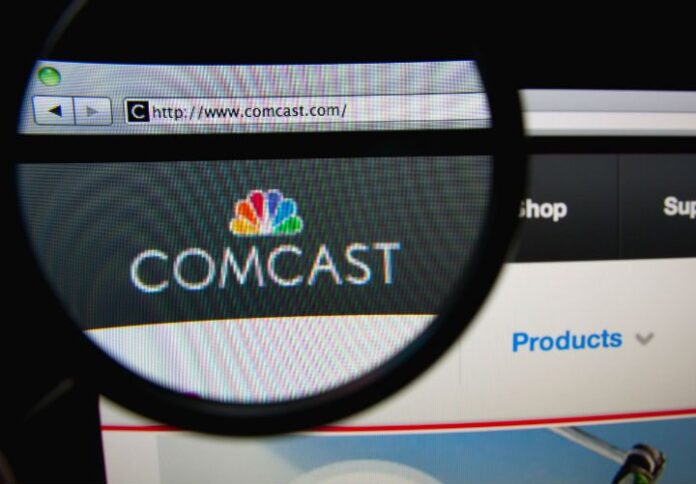Consumer watchdog group calls out Comcast for engaging in monopolistic business
After trying out capping customer data use at 300 gigabytes per month, Comcast is expanding the practice to new markets in 12 states.
The data caps, which Comcast refers to as “trials,” are already in effect in the Orlando, Fla., and Atlanta areas. The new data cap markets are: Huntsville, Mobile and Tuscaloosa, Ala.; Tucson, Ariz.; Little Rock, Ark.; Fort Lauderdale, the Keys and Miami, Fla.; Atlanta, Augusta and Savannah, Ga.; Central Kentucky; Houma, LaPlace and Shreveport, La.; Maine; Jackson and Tupelo, Miss.; Chattanooga, Greenville, Johnson City/Gray, Knoxville, Memphis and Nashville, Tenn.; Charleston, S.C.; and Galax, Va.
According to a Comcast FAQ page, if you use more than the 300 GB, you’ll get an email notification and another 50 GB will be allocated to your account; that also comes with an in-browser notification. The additional 50 GB comes with a $10 fee.
Customers will also be notified in-browser and via email when they hit 90%, 110% and 125% of the data bucket.
Consumer advocacy group Free Press told DSLReports: “Imposing such caps is … part of Comcast’s scheme to stifle innovation and choice in online video and cloud-based services. Access providers, including Comcast, try to justify caps by suggesting that they mitigate broadband-traffic congestion. Yet there’s absolutely no real-world evidence of congestion on wired networks across the board.”
Free Press continued: “Internet access providers that also provide multichannel video services love using these arbitrary caps and limits. Monopoly-minded providers like Comcast have a built-in incentive to protect their legacy businesses. And they’ve captured market share to such an outrageous extent that they can harm their customers at will.”
Comcast VP of Internet services Jason Livingood spotlighted the practice when responding to a question on Twitter back in August.
Twitter handle @CableCares asked Livingood, “Serious question, why are Comcast’s caps set so low compared to the speeds they’re being sold at? 100 Mbps can hit 300 GB in 6 [hours approximately].”
And Livingood’s response: “No idea–I’m involved on the engineering side to manage the measurement systems but don’t weigh in on the business policies.”
That statement has been interpreted by many to mean that the data cap is a “business” policy and not based on any sort of technical imperative.

